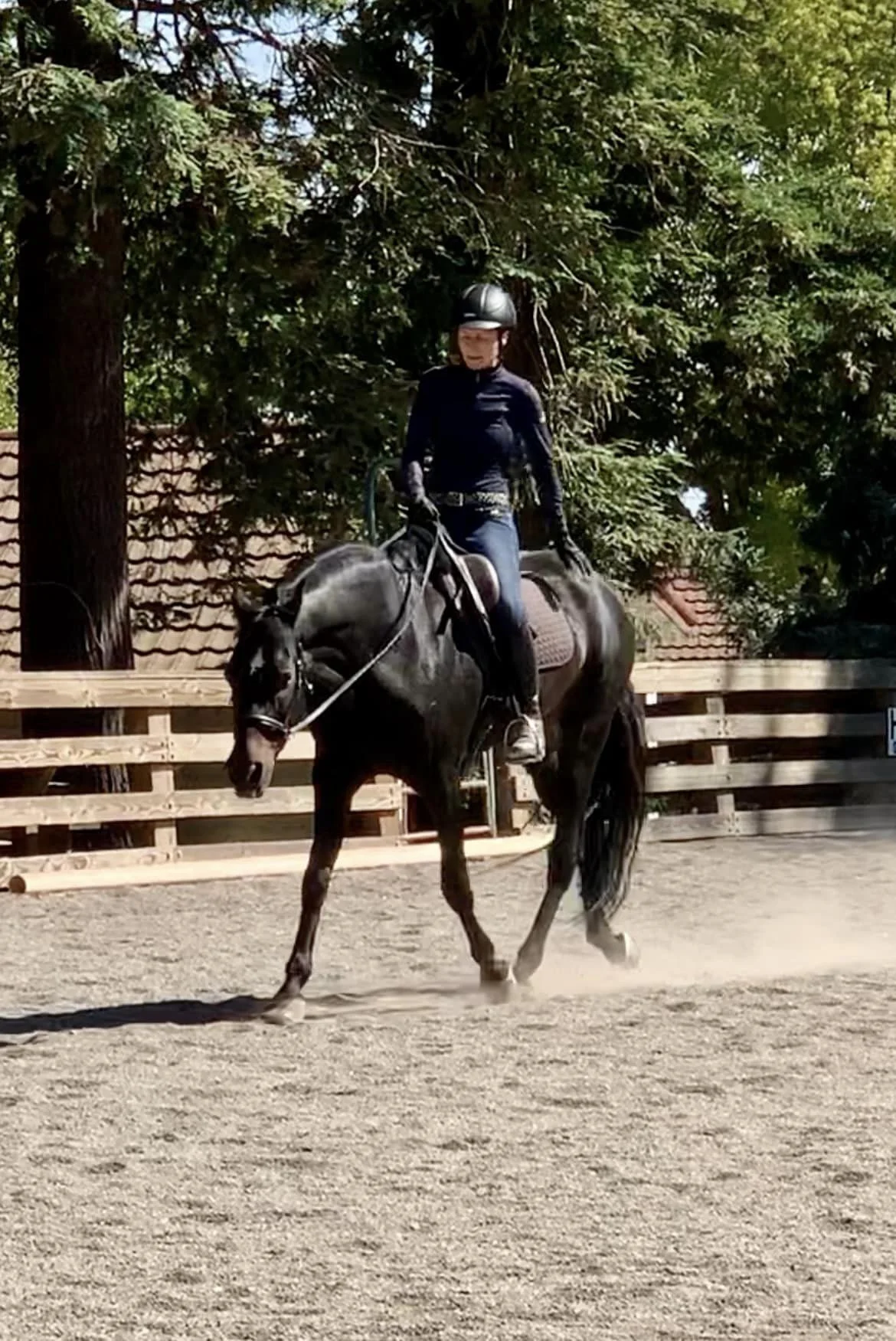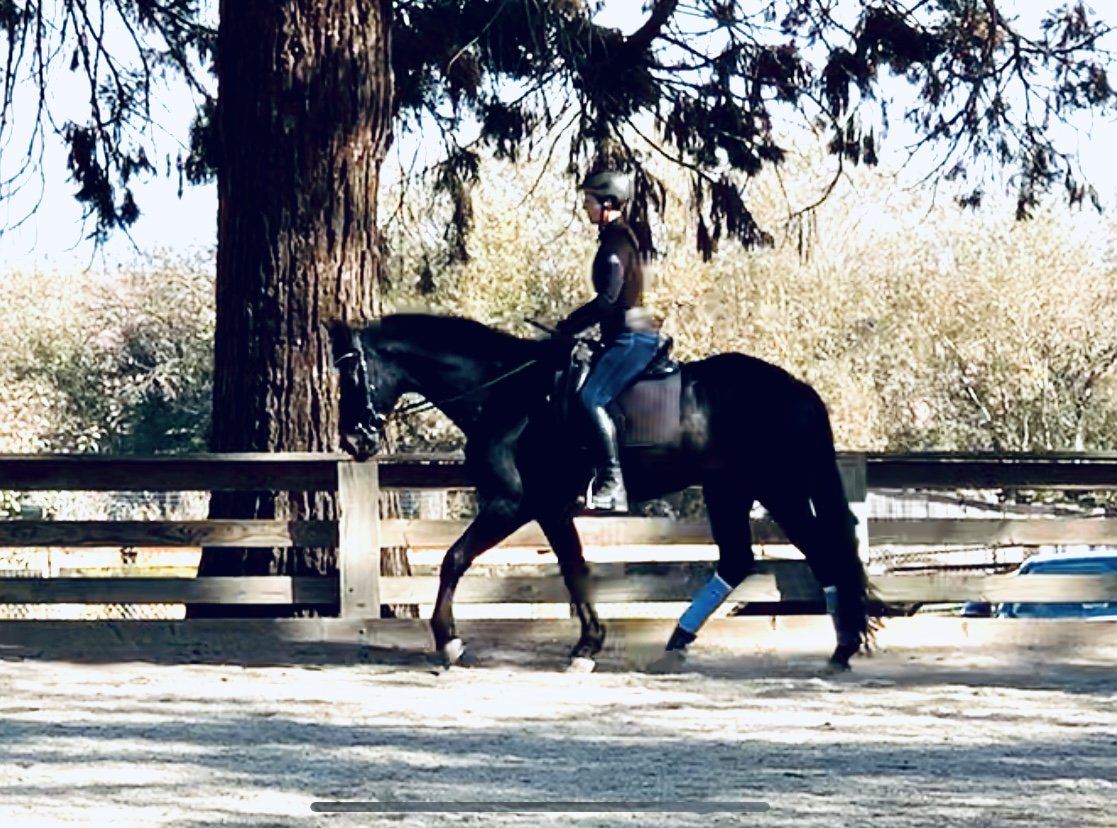Conscious Dressage – What's in the New Name
The other day I was in my favorite coffee shop getting an oat latte (the best in San Francisco, might I add.) In front of me at the register was a couple with two young children going through an elaborate process of selecting their breakfast items. The kids kept changing their minds, and no real progress was being made placing their order. My “normal” reaction to this would have been an inner dialogue that went something like this: Oh lordy, here we go. Why can’t they move to the side while they figure this out? It’s kind of rude to hold up the line like this…. Meanwhile I would have tried to fake a smile.
But: something very strange happened instead. I was observing the unfolding scene with an ever more uncomfortable dad and mom without any negative emotion in a neutral state: without trying. I became conscious of this state and could enjoy both the inner peace and awareness thereof. The dad soon began thanking me for my patience and when I smiled back and said “it’s alright,” I meant it.
I’ve always been much more patient with horses and have certainly learned that punishment is never an option, but I have to admit that sometimes I did feel frustration about something I couldn’t figure out how to make happen or not happen. I didn’t act on it, but now I was incongruent, putting on a fake smile. That’s why being able to be in that neutral observer state is so important, because the horse knows if you’re faking it.
One of the horses I train does best with a regular schedule, meaning that after a few days off he is one on the higher end of the excess-energy-spectrum. For the past 6 months, I’ve been working with him a lot on emotional self-regulation skills, and today we were able to go on a very relaxed trail ride after several days of rain (the arena was still unusable), even cross the little creek. Before we did this work, I wouldn’t have felt safe trying this without sticking him on the lunge first. This is also the horse who can now w/t/c around me in one of those super soft, thick fleecy halters and a cotton lead rope in balance without putting any tension on it.
And this leads to a new name. I decided to change the name of my business from Back2Front Dressage to Conscious Dressage not because there is anything wrong with the former. The idea of riding your horse back to front remains a pillar of good riding. But there is so much more to every interaction with our horses and the training process that requires being conscious before you ever get to ride and then of course while you ride. These are two elements of the same coin. Classical Dressage (when done well – see Anja Beran’s work for that), requires consciousness and serves as physical therapy for the horse. The work and connection with us can replace some of what we cannot give them in terms of natural living conditions though of course we must meet their physical and emotional needs. You cannot “energy work” your riding horse into good balance under saddle.
The Oxford Living Dictionary defines consciousness as "the state of being aware of and responsive to one's surroundings.", "a person's awareness or perception of something,” and "the fact of awareness by the mind of itself and the world."
I want to be very clear that I’ve not suddenly turned into some sort of a Zen master. I struggle with my monkey mind as do most people. And I’ve barely scratched the surface of what’s possible by incorporating some breathing practices into may daily routine. (Those come in very handy when you’re awake at 3 am wondering whether you’ll ever figure out your life…). But that wiggly left foot I’ve had all my life? Gone. Emotional release. (Mind blown!?!?) And I’ve utilized (i.e. am learning) the connection and very systematic groundwork exercises Warwick Schiller uses. (And I’ve binge-listened to his podcast…)
And I love seeing that more and more people relate to their horses in this way. But many horses don’t get the skilled emotional OR physical attention they need. And so many more are still handled and worse yet punished by emotionally dysregulated and unconscious handlers and riders. On all levels, we need to speak up. There’s the Danish FEI pony whose tongue was partially amputated because he showed it during tests (it’s sign of bad training in the first place). Then we’ve got Helgstrand-Gate, a millionaire horse trader getting caught practicing systematic abuse; meanwhile I am being told about a horse at a high-end barn down the road being literally beaten into the trainer, and a prominent OTTB rescue posts that a 6 year old has “hit the jackpot” having found a retirement home due to two badly, permanently injured front legs.
All of this or course reflects the state of our world at large. But we need to start with ourselves if any change is to ever come about.
If we can spend more time in a state of heightened consciousness , especially when we’re with our horses, and listen to them so they feel seen, heard, understood and safe (—> See Warwick Schiller on attunement), AND we work with them classically (which stands for within their natural limits, fair, and systematically), we can create incredible experiences for them and for us.







